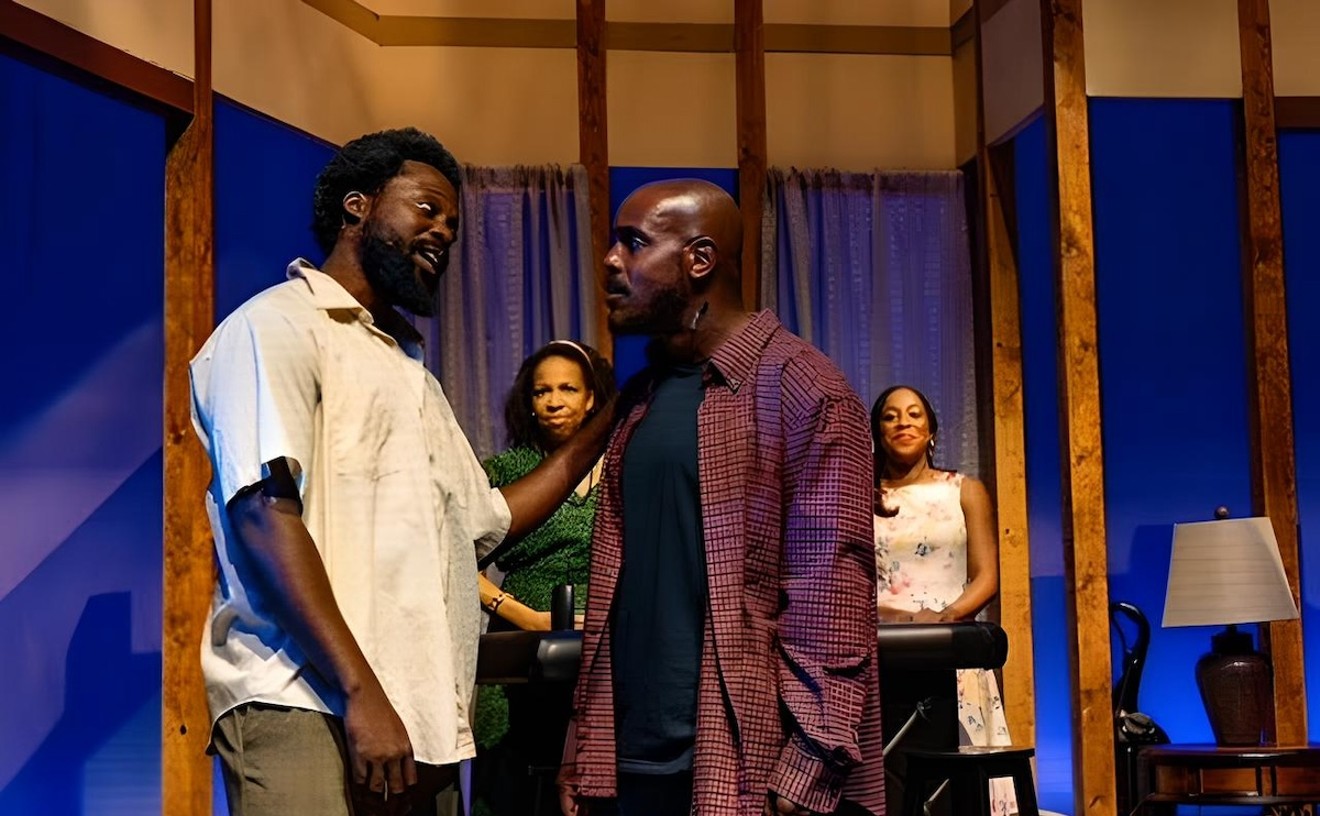Juan Manuel Fernández Montoya, known as "Farruquito," was born into one of the grand families of flamenco. His father was the cantaor Juan Fernández Flores, "El Moreno." His mother, dancer Rosario Montoya, was referred to as "La Farruca." And his grandfather, the founder of a flamenco school of dancing and the legendary Antonio Montoya Flores, was known as "El Farruco."
Farruquito will be one of the headliners at the Arsht Center’s extensive Flamenco Festival tomorrow, Thursday, March 3.
The dancer, now 33, was only 8 years old when he presented his first show at a Madrid theater. At age 11, he was part of a video about singer Camarón de la Isla. The following year, he joined his grandfather in Flamenco, a film by Carlos Saura. He was growing up onstage — literally and figuratively — but in 1997, his grandfather died, and Farruquito's childhood abruptly ended.
Overnight, Farruquito, who was 15 at the time, became the repository of a flamenco dance tradition and his grandfather’s legacy. In fact, Farruquito’s life and career have been marked by tragedy. In 2001, only four years after the death of his grandfather, his father died of a heart attack. “Onstage, in my arms,” Farruquito once recalled. In an interview published in June 2003, his mother spoke of how “the child was in shock and spent three months without speaking. Sometimes he dances crying. I only have to look at his eyes.”
A few months after that interview, Farruquito was involved in a hit-and-run in Seville that resulted in the death of a man. Found guilty of negligent homicide and leaving the scene of an accident, Farruquito served a jail term. His actions that night are “something I will have to live with the rest of my life,” he said in a whisper during a recent interview.
Since the accident and its aftermath, Farruquito has been rebuilding his life and career and reclaiming his place in flamenco. His most recent show, Improvisao (Improvised) is coming to the Arsht Center tomorrow. Artburst spoke with the dancer about the early experiences that shaped his career, his show, and the place of improvisation in flamenco in the present day.
You first visited the United States as a child., and it seems it was a crucial experience for your development as an artist. How so?
It makes me smile when I see mentions that I “debuted on Broadway at the age of 5.” What happened was that my family was in the show, and my mother didn’t have anybody to leave me with, so I traveled with them. I watched Flamenco Puro [which ran on Broadway in 1986] every day from the side of the stage... I believe it was the greatest, most important experience I had in flamenco.
You have spoken of Improvisao as a return to the source for you. Can you elaborate?
I remember watching my uncle "El Chocolate" [cantaor Antonio Nuñez Montoya] going to my grandfather’s dressing room and he would start joking with him to loosen him up because Chocolate would get so nervous. That’s when he tried things out. He might have asked the guitar player to change the key depending on how he felt. Those are things I don’t forget. Nowadays that... just doesn’t happen. You know in which key you are singing three months in advance. But how do you know how you are going to feel that night?
What does Improvisao mean at this point in your career?
Improvisao is about freedom and a certain responsibility. Freedom because I can do what I want within the structure I’ve created. It’s fun — but it’s also a learning experience, because you are rediscovering yourself every night. And then there is also the responsibility of coming up with results... You are exposed. And the people who really enjoy flamenco come to the show with the attitude that the performance is a shared adventure.
What is the role of improvisation in the flamenco tradition?
To my mind, the origin of flamenco is improvisation. Flamenco didn't start in an academy or in a school setting. Flamenco was born in home gatherings. I don’t remember when I started dancing. What I do remember from when I was a little boy is that while my mother was, say, cooking, and she had to go from the kitchen to the patio, and if she thought of something, she would dance it.
Any celebrations at home, be it a birthday or any good bit of news, it was all ole! and song and dance. That was not some sort of training — it was life.
— Fernando González
Farruquito’s Improvisao, part of Flamenco Festival Miami 2016
8 p.m. Thursday, March 3, in the Knight Concert Hall at the Adrienne Arsht Center for the Performing Arts, 1300 Biscayne Blvd. Miami; 305-949-6722; arshtcenter.org. Tickets cost $35 to $95 via [email protected].
[
{
"name": "Air - MediumRectangle - Inline Content - Mobile Display Size",
"component": "19274298",
"insertPoint": "2",
"requiredCountToDisplay": "2"
},{
"name": "Editor Picks",
"component": "17482312",
"insertPoint": "4",
"requiredCountToDisplay": "1"
},{
"name": "Inline Links",
"component": "18711090",
"insertPoint": "8th",
"startingPoint": 8,
"requiredCountToDisplay": "7",
"maxInsertions": 25
},{
"name": "Air - MediumRectangle - Combo - Inline Content",
"component": "17482310",
"insertPoint": "8th",
"startingPoint": 8,
"requiredCountToDisplay": "7",
"maxInsertions": 25
},{
"name": "Inline Links",
"component": "18711090",
"insertPoint": "8th",
"startingPoint": 12,
"requiredCountToDisplay": "11",
"maxInsertions": 25
},{
"name": "Air - Leaderboard Tower - Combo - Inline Content",
"component": "17482313",
"insertPoint": "8th",
"startingPoint": 12,
"requiredCountToDisplay": "11",
"maxInsertions": 25
}
]










